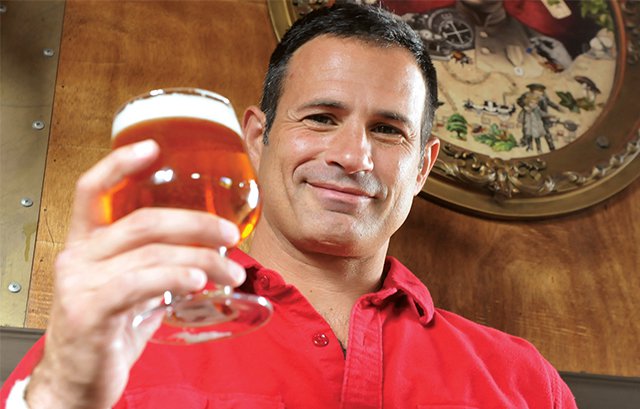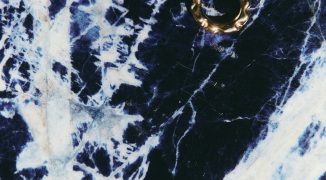Dogfish Head is a tough company to pin down. Is it a beer brand, a distillery, a restaurant, an apparel company, or something else entirely? It’s that kind of omnipresence over many different worlds that sets the Delaware-based brand apart from almost everyone else, and that’s exactly how owner and founder Sam Calagione likes it. Built from the ground-up, Calagione has fostered Dogfish over the past 20 years into more of a lifestyle that plays with their pledge to be as “off-centered” as possible. Here, Calagione reflects on Dogfish’s growing footprint, which includes everything from a hip hotel to an expanding distillery.
Dogfish Head is now a lifestyle brand. You have a restaurant, motel, apparel, coffee, liquor- and the list goes on and on. When did you decide to make the shift from just making beer to something much bigger?
It was very early on. When we first opened in 1995, we were the smallest brewery in the country and wanted to focus on the culinary aspect as well. So since day one we were focused on going beyond beer, and what followed is designing our own shirts and hats, and then ice cream in ‘97.
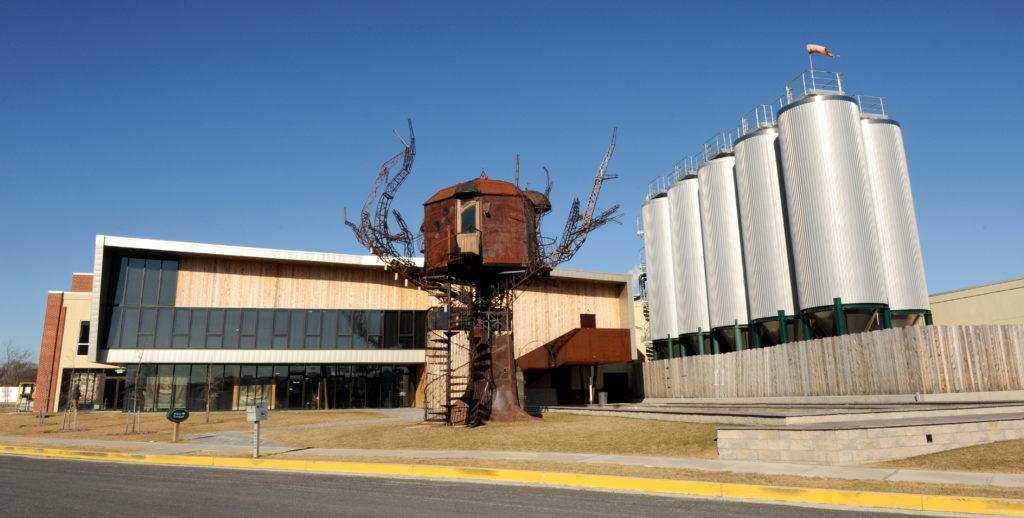 The Dogfish Head Brewery in Milton, Del. offers more than just tours and tastings– there are yard games, live musical performances, and a bevy of beer-centric snacks to be eaten.
The Dogfish Head Brewery in Milton, Del. offers more than just tours and tastings– there are yard games, live musical performances, and a bevy of beer-centric snacks to be eaten.
Those parts of our world have been there for our entire 20 years. What was your inspiration? The first thing that comes to mind when you look at your huge portfolio — including the hotel — is that it’s an all-encompassing brand much like Disney.
Disney is a company we definitely admire for being able to put their creative thumbprint on a bunch of different worlds. For us, our motto is “Off-centered ales for off-centered people.” The “ales” part of that statement is kind of a placeholder for us to explore. What other creative worlds can we put our own off-centered thumbprint on? Whether it’s clothing, or a locally roasted coffee, having the theme of off-centeredness being the focal point of our brand gives us a very dynamic platform from which we really play around with.
Tell me about the origin of the hotel, the Dogfish Inn. It’s a quirky part of your world and yet it very much works. How did that come about?
Well, where it is is geographic kismet. Not only is it close to where I live (in Lewes, Delaware), but it’s equidistant to both our restaurant and brewery, perfectly located near the water between those two locations. At our brewery or pub, we can only hang out with our guests for an hour or two. The hotel gives us an opportunity to extend our interaction as co-workers with people who are psyched to learn more about Dogfish into at least a 24 hour window of time. It’s so small that it can only marginally contribute to our profitability, so it’s not about growing revenue at Dogfish. It’s more about how deep we can go with our communication with beer and food lovers, and how much we can learn from people. Any weekend I’m home, I try to meet the guests by the backyard fire pit and talk to them about everything Dogfish.
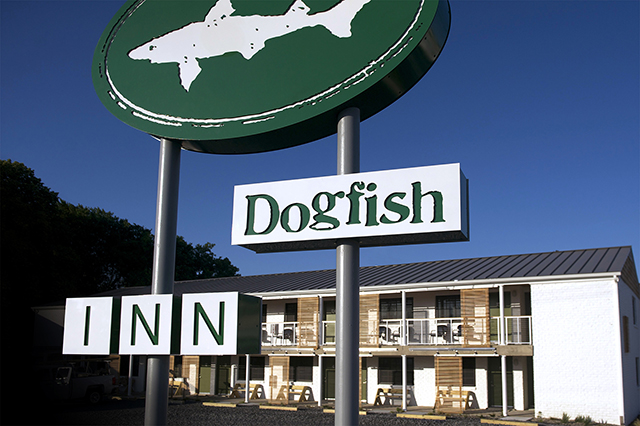 The Dogfish Inn appeals to both beer enthusiasts and people passing through. rn
The Dogfish Inn appeals to both beer enthusiasts and people passing through. rn
Let’s talk about the guests who stay at the Inn. Are they hardcore fans of Dogfish, or are they just people looking for a room to stay in Lewes and you happen to have a nice place?
It’s 95 percent people who are staying primarily because it’s Dogfish Head, whether they’re fans of the restaurant or spirits, not just the beer. What’s funny is our “Inn-mates”- which is what we call our co-workers who work there- will tell me stories about how guests who don’t know the brand or beer become excited about it during their stay.
How did you get into the coffee side of things? In the entire Dogfish world, that’s the most curious considering you never usually hear of a beer company venturing into the coffee business.
Our company’s love affair with coffee began even before we opened when I was home brewing. One of the first beers I brewed in 1995 was our Chicory Stout, which was the first breakfast stout brewed commercially. It’s sort of an homage to New Orleans-style coffee, where the roasted chicory is forward in the recipe. Since day, we roasted the coffee for the Chicory Stout three blocks from our house at a local roaster. The process of brewing coffee and brewing beer are super similar, so we started playing around and introduced a barley malt into the coffee-making process. We found this toasted malt from Munich, Germany that worked really well with the chicory in the coffee, and that’s how we came up with our blend.
Where do you see Dogfish Head in five or ten years. Do you have bigger plans?
We intend to keep growing, but we believe in strong growth over fast growth. We’ll continue to grow our distillery business and will really start experimenting to a degree we couldn’t when our facility was in our restaurant- it’s now it’s in a big space in Milton, Delaware with plenty of room for exploration. In terms of other locations, we’ll be looking for opportunities to find other homes for our brand, whether physical or with products.
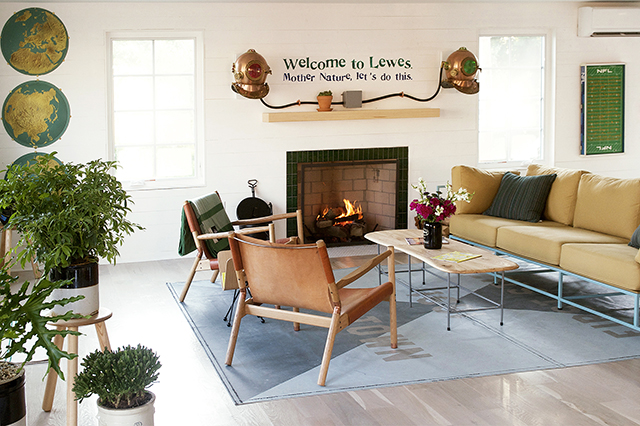 Guests who are new to the Dogfish Head brand often leave the inn as major fans.
Guests who are new to the Dogfish Head brand often leave the inn as major fans.


